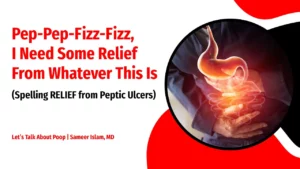This video focuses on the differences between food intolerances and food allergies. Food intolerances are difficulties digesting certain foods, which can cause symptoms like bloating, nausea, and joint pain. Food allergies are an immune system reaction which can result in life-threatening results such as anaphylactic shock, hives, and difficulty breathing. It is important to pay attention to how you feel after eating certain foods, eliminate those that cause symptoms, and find someone knowledgeable to help with food intolerance testing and management.
VIDEO HIGHLIGHTS
- Dr. Islam explains the difference between a food intolerance and a food allergy: an intolerance is when your body has difficulty digesting certain foods, while an allergy is when your immune system attacks itself in response to eating something.
- Common food intolerances include dairy products, gluten-containing foods, additives like sulfite or sodium benzoate, and histamine or coloring agents added to make processed foods tastier.
- Symptoms of a food intolerance can range from bloating and nausea to joint issues; however they are not life threatening as with allergies which can cause hives, throat closing and even anaphylactic shock if severe enough.
- Tips on how one can tell the difference between these two conditions include paying attention to symptoms after consuming certain foods (in low amounts) as well as consulting with allergists for testing purposes if unsure what condition you have
FULL TRANSCRIPT
Has food actually made you feel bad? And are you wondering, huh, do I have a food allergy or is this some sort of food intolerance? And are you wondering what exactly is the difference on this video? I’m gonna get straight to it and tell you exactly what the difference is between a food intolerance and a food allergy. And if you wait till the very end, I’ll give you my tips on what you can do to help figure out what you need to do for either one of these conditions. Guys, let’s talk about poop. How do y’all, Dr. Isla here, a k a, your poop guru, trying to give you the best tips and tricks so you can live your best life from the top all the way down to the bottom.
Haven’t already. Don’t forget to smash that like button like Sharon subscribes. You get more notifications on how you can take care of your gut health in a natural and holistic way. So you may have heard of somebody say, Hey, I’ve eaten this food and it just does not sit well with me. Common things like milk and cheese get bloated, dissension and diarrhea.
Well, people assume that that’s an allergy when actually it’s just an intolerance. An intolerance is your body’s way of telling you that it doesn’t like the food that you’re eating, and it’s going to express that in certain symptoms like bloating, nausea, vomit, maybe even joint issues as well. Now, the key thing to remember about food intolerances is that it is just your body’s inability to digest that food.
It is not your immune system attacking itself like it would be for a food allergy, which we’ll talk about in just a little bit. And this is a very common problem to have. Have you heard of glutened issues? Well, it’s all over the world, and most people have gluten issues, actually have an intolerance to eating certain characteristics of gluten. What actually happens is that as that food goes down your GI tract, your body for some reason has difficulty absorbing and breaking down that food. It could be missing some enzymes. Maybe you don’t have the right metabolism to break it down. Maybe it’s something you’re not digesting well, who knows? But in that process of breaking things down, your body does not want to do that. And that could lead to symptoms such as bloating, dissension, joint issues, diarrhea and constipation. And there are very common food intolerances that you may not be aware of. Things like cheese, milk, some of the more common ones, certain weed products, including gluten. It’s not just fake, but some people actually have an intolerance to gluten as well. Certain food additives that are added in foods to make it yummier and tastier actually may be something.
You are intolerant too. These are gluten things like sulfite, sodium benzoate histamine, and food colorings. In fact, you may want to go through the actual ingredients of what you commonly think you are intolerant to, to see if those ingredients have these additives, which will make it less likely for you to be able to digest those foods. And food intolerances are so common that it’s not out of the ordinary for people to have certain foods that just don’t sit well with them.
Now, the other thing you need to be aware of when it comes to food intolerances is that everyone has a certain threshold when they feel bad with these foods. Meaning there is a chance if you have an intolerance to foods at a smaller amount or threshold, you can eat that food and slowly build your way up to eating the foods to the point where you enjoy them.
Yes, you can actually get over it through time. It’s not a a prison sentence forever. This is very different from a food allergy in which yes, it actually is. Apri meet with, with, with, I don’t know, prison garbs and handcuffs. But yes, it’s an actual prison sentence. This is when your body’s immune system attacks what’s going on because it actually is a allergic to the food that you’re eating.
And this will be a severe consequence to a lot of individuals. Have you ever heard about peanut allergy? It literally is an allergy in which you have an anaphylactic shock. Your body attacks itself, you get shortness of breath, hives, difficulty breathing, throat closing. It is a life threatening emergency. And that is a true food allergy. And this is actually where your immune system will attack itself because of what you eat.
It’s not just the typical nausea, vomiting, bloating, ah, no, it is beyond that. It is so severe that it can actually be life threatening. And this is why you have to carry EpiPens for those individuals that have a food allergy. So common centers of food allergy include skin rashes like hives, anaphylaxis in which you have difficulty breathing, choking tightness.
And these are conditions that are very different from having a food intolerance. Some of the more common food allergies include fish, eggs, peanuts, like mentioned before, tree nuts, soybeans. And for some individuals, milk can actually be an allergy instead of intolerance, shellfish. And then lastly, wheat. So how can you tell the difference of what do you need to do?
Well, number one, it really just depends on your symptoms. If you have bloating, dissension, nausea, but you don’t have this severe systemic life, life-threatening effects, there’s an excellent chance. It’s just an intolerance. Number two, if you’re not sure, try to eat the food in very low amounts. Your body will tell you what is going on and what you need to do.
Number three, if you’re confused, consider seeing an allergist to get testing for this. Now, an allergist can test for food allergies. It’s difficult for them to test for a food intolerance, but guess what? The best test is not some lab you, yes, you. Your body will tell you if you don’t like to have this. So for example, I am lactose intolerant. Don’t tell anybody. But when I have milk, oh man, it’s like an explosion goes off in my belly. Lots of gas, lot of bloating. I can tell you my kids are not happy when I have cereal, but I know for me, my body’s response, especially at lots of milk, is to have those symptoms.
But at low doses, I can handle it fine. And the exact same thing can happen too when you have a food intolerance. So here’s what I want you to do this week. I want you guys to pay attention to how you feel when you eat certain foods. Do you notice, hey, when I add that lenon to my coffee, I don’t feel so good or milk, it gives me the runs. You may be suffering from a food intolerance, and if you do, you may want to consider eliminating that food from your diet. Or if you have any questions, come see you know who to help me figure out what exactly is going on. So my question of the day, do you know the difference between a food allergy and a food intolerance?
You have certain food allergies. Have you dealt with them? What have you done? Comment down below. I would love to hear what you guys have to say. Wanna thank you for watching. Don’t forget to smash that live button, like sharing, subscribe. And if you haven’t already, don’t forget to subscribe to my newsletter. We can get great tips and tricks of what you can do naturally to help out with your health so we can get you off your medications.
Guys, don’t forget, let’s talk about poo. Thanks everybody.



